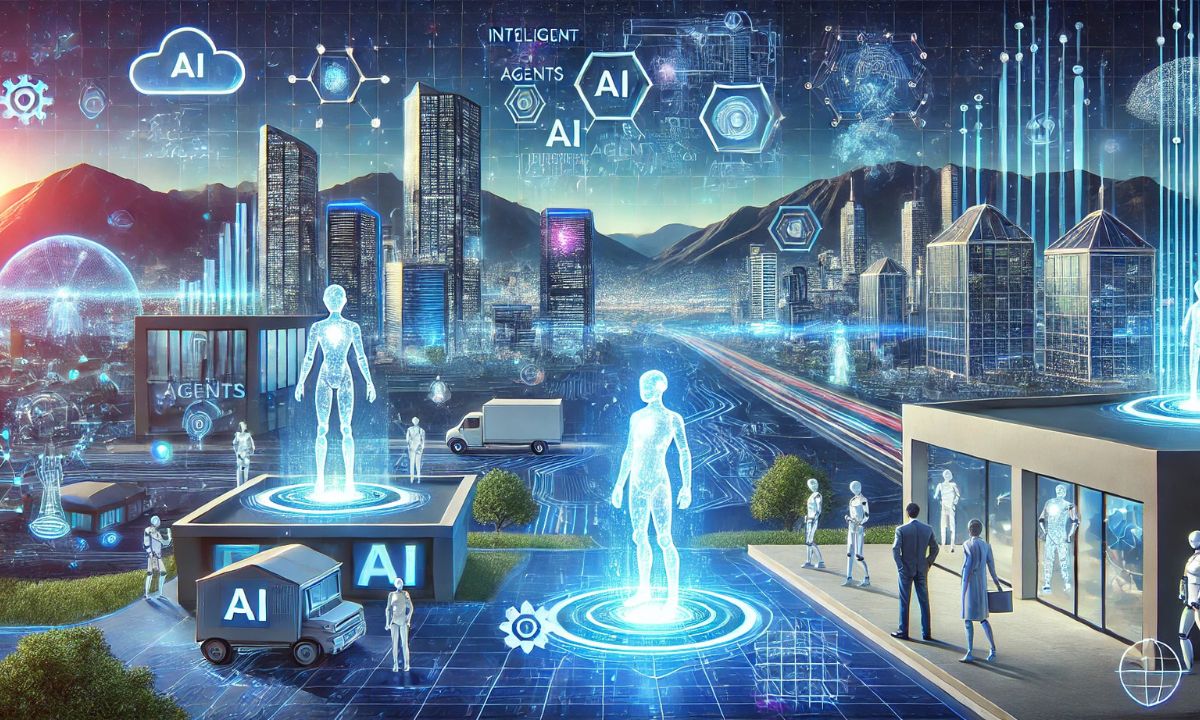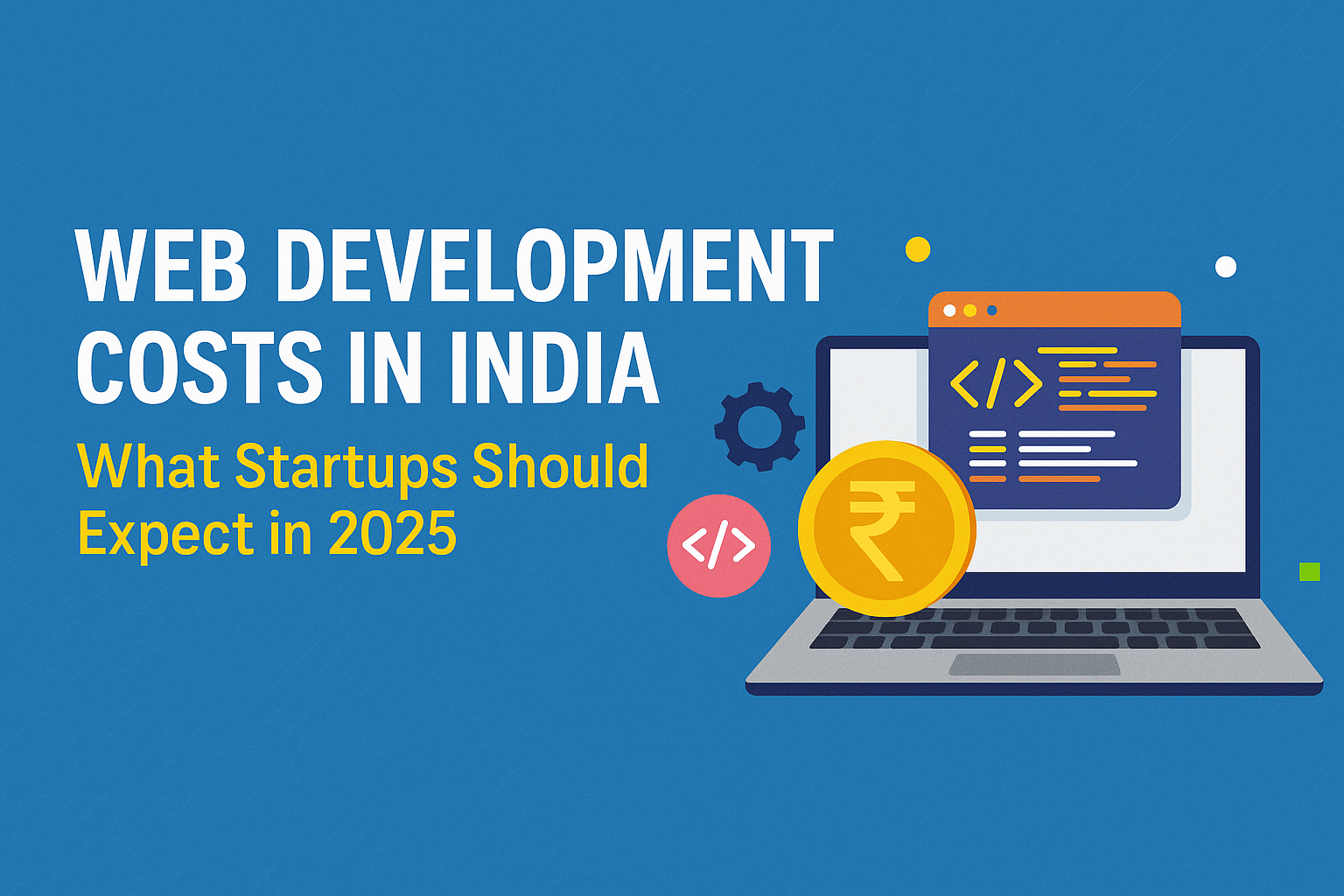How Can Startups Gain a Competitive Edge Through AI Agent Development?

Strong 8k brings an ultra-HD IPTV experience to your living room and your pocket.
In today’s ultra-competitive digital landscape, startups are under immense pressure to innovate quickly, optimize operations, and deliver exceptional customer experiences—all while managing limited resources. In this environment, artificial intelligence (AI) has emerged as a transformative force, particularly through the deployment of AI agents. These intelligent digital entities are capable of performing tasks, learning from data, and automating processes across various business functions. For startups looking to punch above their weight, Custom AI Agent Development offers a strategic advantage that can redefine their growth trajectory.
What Are AI Agents?
Before diving into the benefits, it's important to understand what AI agents are. An AI agent is a system that perceives its environment and takes actions to maximize its chances of achieving certain goals. These agents can be simple rule-based systems or complex learning-based models that adapt and improve over time.
Types of AI agents include:
Reactive Agents: Respond directly to environmental stimuli without memory.
Model-Based Agents: Use internal models to evaluate different strategies before acting.
Goal-Based Agents: Make decisions to achieve specific outcomes.
Learning Agents: Learn from past experiences to improve future performance.
AI agents can be deployed across customer service (e.g., chatbots), sales automation, personalized marketing, operational optimization, product recommendations, and more.
Why Startups Should Consider AI Agent Development
Startups inherently face unique challenges: limited funding, small teams, and the need to scale quickly without compromising quality. AI agent development provides solutions to many of these constraints.
1. Operational Efficiency
AI agents can automate routine and repetitive tasks that would otherwise require human labor. From data entry to customer support ticket triaging, AI agents free up human resources to focus on strategic activities. This translates to:
Lower operational costs
Faster process execution
Improved accuracy and reliability
For example, an AI-powered assistant can automatically handle scheduling meetings, managing emails, or updating CRM data—tasks that consume valuable time.
2. Enhanced Customer Experience
Customer expectations are higher than ever. AI agents offer 24/7 responsiveness, personalized communication, and immediate problem resolution. This creates:
Improved customer satisfaction
Reduced churn rates
Higher customer lifetime value
Startups can implement AI agents in live chat, voice assistants, or helpdesk systems to provide seamless support even with a lean team.
3. Data-Driven Decision Making
Startups often struggle with making decisions due to limited market insights. AI agents equipped with machine learning algorithms can analyze large datasets in real-time, offering predictive insights and strategic recommendations.
Use cases include:
Identifying high-value customer segments
Forecasting demand and sales
Monitoring competitor activities
Optimizing marketing campaigns
4. Agility and Scalability
AI agents can be easily scaled across different functions and geographies without proportionally increasing overhead costs. As startups grow, AI agents can evolve with them, learning and adapting to new environments.
Moreover, AI agents facilitate:
Faster time-to-market for products
Agile experimentation and pivoting
Real-time adaptation to market changes
Key Applications of AI Agents in Startups
Let’s delve deeper into how AI agent development manifests across various startup functions.
A. Customer Support Automation
AI-powered chatbots and voice assistants have become a staple for many startups. These agents can handle thousands of customer inquiries simultaneously, reducing response times and operational load.
Benefits:
Handle FAQs instantly
Escalate complex issues to human agents
Learn from customer behavior for smarter interactions
Operate round the clock with consistent quality
B. Sales and Lead Generation
AI agents can identify promising leads by analyzing user behavior, segmenting audiences, and even reaching out with personalized messages.
Examples:
Automated lead scoring based on customer interaction
Email personalization and follow-up scheduling
Conversational sales agents that guide users toward conversion
This allows startups to maximize revenue generation with minimal manpower.
C. Recruitment and HR Management
Hiring is a resource-intensive process. AI agents can screen resumes, schedule interviews, and even assess candidate sentiment through natural language processing (NLP).
They help by:
Reducing hiring time and bias
Enhancing candidate experience
Predicting cultural fit and performance
Startups benefit by building high-performing teams faster and more efficiently.
D. Product Recommendations and Personalization
AI agents enable personalized customer experiences by analyzing user preferences and browsing patterns. E-commerce startups, for example, use AI agents to suggest products based on a user's purchase history and interactions.
Key outcomes:
Improved conversion rates
Higher average order value
Better customer retention
Personalization driven by AI agents is a significant differentiator in crowded markets.
E. Fraud Detection and Cybersecurity
Startups handling financial transactions or sensitive data can deploy AI agents to detect anomalies and potential fraud in real time.
Capabilities include:
Behavioral analysis
Real-time alerts
Automated blocking of suspicious activity
This ensures trust and compliance, which is critical for brand reputation.
Benefits of Custom AI Agent Development for Startups
While off-the-shelf AI solutions are widely available, they often lack the specificity required by innovative startups. Custom AI agent development provides tailored solutions aligned with a startup’s unique goals, infrastructure, and customer expectations.
Here are the major benefits:
1. Tailored Functionality
Custom-developed AI agents align precisely with business workflows, unlike generic bots which often require process adaptation. Tailored agents can incorporate specific business rules, language models, and decision trees.
2. Brand Differentiation
With custom solutions, startups can build unique customer experiences that stand out in the marketplace. From voice tone and language to interface design and response strategy—everything can be customized to reinforce brand identity.
3. Data Privacy and Control
Startups may be cautious about sharing proprietary data with third-party platforms. Custom AI development allows complete ownership of the codebase and the data, ensuring higher security and compliance with regulations like GDPR or HIPAA.
4. Cost Optimization in the Long Run
Though the initial investment might be higher, custom AI agents can reduce dependency on subscription-based tools and eliminate unnecessary features, saving costs in the long term.
5. Integration Flexibility
Custom agents can be built to integrate seamlessly with the startup's existing tech stack—CRM, ERP, marketing tools, etc.—creating a unified ecosystem that boosts productivity and consistency.
Challenges and How to Overcome Them
While the advantages are clear, AI agent development isn't without challenges.
1. Limited Technical Expertise
Startups often lack AI specialists. The solution? Partner with experienced AI development firms or hire freelance experts on a project basis.
2. Data Scarcity
AI agents thrive on data. Early-stage startups might not have enough. In such cases, synthetic data generation, pre-trained models, and third-party datasets can help bootstrap AI performance.
3. High Initial Investment
Custom AI development can be costly upfront. However, open-source frameworks and cloud-based AI services (e.g., Google Vertex AI, AWS SageMaker, OpenAI API) can reduce initial costs significantly.
4. Ethical and Regulatory Concerns
Misuse of AI or biased algorithms can lead to reputational damage. Startups must incorporate explainability, fairness, and compliance into their AI design and decision-making processes.
How to Start Your AI Agent Development Journey
To make the most out of AI agent development, startups should follow a structured path:
Step 1: Identify High-Impact Use Cases
Start by identifying pain points that AI agents can solve efficiently. Prioritize based on ROI and feasibility.
Step 2: Collect and Prepare Data
Quality data is foundational. Collect relevant internal data and identify gaps. Clean and structure it for model training.
Step 3: Choose the Right Development Approach
Build In-House: Suitable for tech-driven startups with AI talent.
Partner with AI Agencies: Ideal for non-technical startups wanting to move fast.
Use No-Code AI Platforms: Tools like Akkio, Peltarion, or MonkeyLearn are useful for MVPs.
Step 4: Develop, Test, and Iterate
Build a prototype. Test rigorously using real-world scenarios. Continuously improve using performance metrics and user feedback.
Step 5: Monitor and Scale
Once deployed, monitor performance and scale across departments or geographies. Update the model regularly for improved accuracy and relevance.
Real-World Examples of Startups Leveraging AI Agents
1. Ada Support
A Canadian startup that provides AI-powered customer support agents to automate over 80% of customer interactions for companies like Zoom and Shopify.
2. X.AI (Acquired by Bizzabo)
Built an AI assistant named “Amy” that autonomously scheduled meetings. It was widely adopted by busy professionals and small teams.
3. Intercom
While now a scale-up, Intercom started as a messaging tool but quickly integrated AI-powered bots to manage customer support and sales inquiries intelligently.
These examples show that even small startups can make a global impact through intelligent automation.
The Future of AI Agent Development for Startups
Looking ahead, AI agents are evolving from task-specific tools to collaborative digital workers that can reason, converse, and make decisions autonomously. Emerging trends include:
Multi-modal agents (text, voice, video)
Emotionally intelligent agents
Agent-as-a-Service models
Autonomous product managers and marketers
Startups that adopt and innovate around AI agents today are positioning themselves for exponential growth tomorrow.
Conclusion
Startups thrive on innovation, speed, and disruption—and AI agents are the ultimate enablers of these qualities. Whether it's through automating customer support, analyzing market data, optimizing sales funnels, or offering hyper-personalized experiences, AI agents empower startups to achieve more with less.
More importantly, AI Agent Development is not a luxury anymore—it’s becoming a necessity for startups aiming to stay ahead of the curve. By investing in Custom AI Agent Development, startups can not only gain a competitive edge but also future-proof their operations in a tech-driven world.
Note: IndiBlogHub features both user-submitted and editorial content. We do not verify third-party contributions. Read our Disclaimer and Privacy Policyfor details.







